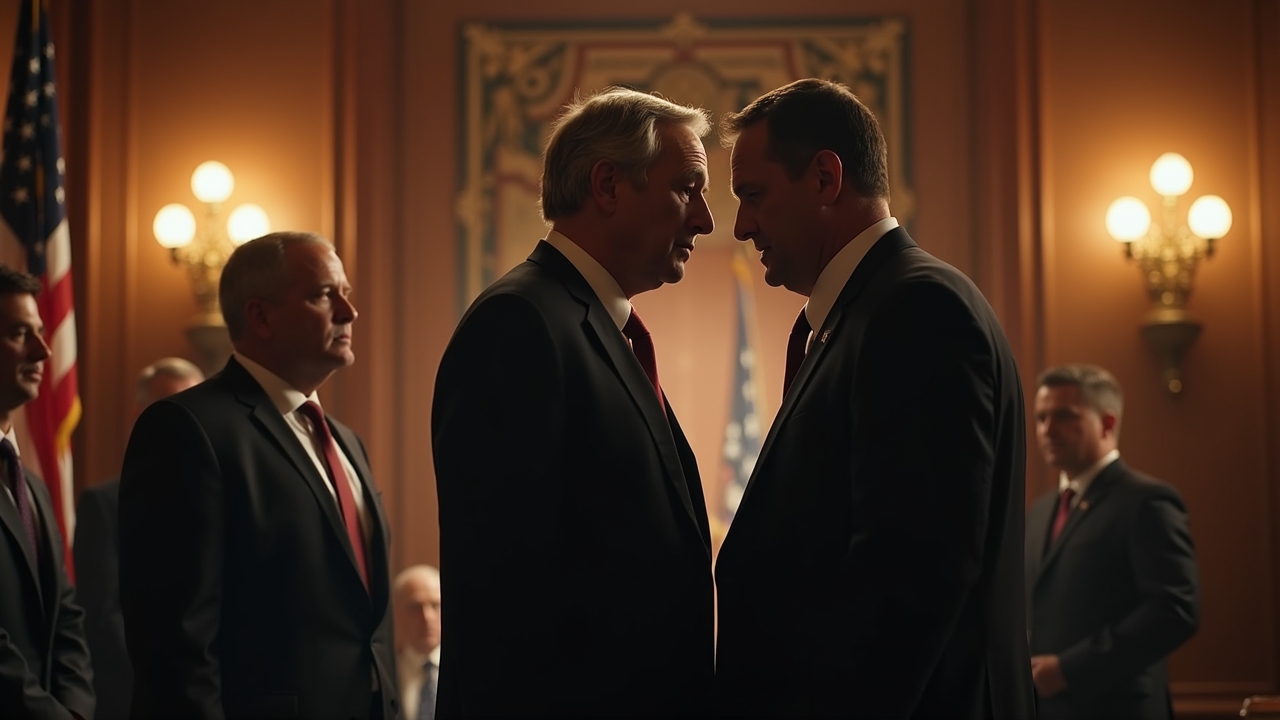PROTECT YOUR DNA WITH QUANTUM TECHNOLOGY
Orgo-Life the new way to the future Advertising by AdpathwayHouse Minority Leader Hakeem Jeffries (D-NY) recently faced a tough reality check on CNBC’s “Squawk Box,” where co-host Becky Quick challenged his arguments regarding the government shutdown. This confrontation unfolded against the backdrop of the so-called Schumer Shutdown, which began at 12:01 AM on October 1. The shutdown occurred after two measures in the Senate failed to secure the necessary 60 votes to avoid a closure. The GOP-backed measure fell short, garnering a 55-45 vote, with Senator Rand Paul siding with Democrats.
In the lead-up to this incident, Jeffries has been vocal in blaming Republicans for the shutdown, asserting that Democrats were left with no choice but to act. His narrative hinges on the claim that Republicans must extend Obamacare tax credits to prevent Americans from suffering under crippling health insurance costs. However, Quick’s response to Jeffries was poised and impactful. She pointed out that Democrats had ample opportunity to secure a permanent extension of these tax credits when they controlled all three branches of government. Instead, they opted for a mere three-year extension, setting the stage for the current crisis.
Quick’s dismantling of Jeffries’ argument underscores a critical point: the Democrats are now appealing to Republicans to resolve a problem they created while they were in power. Her assertion that “what you are asking Republicans to do right now is effectively what the Democrats could not do when they controlled all three branches of government” resonates strongly. This highlights the contradiction at the core of Jeffries’ position.
Throughout the exchange, Jeffries struggled to maintain his stance against Quick’s compelling argument. His only response was to reiterate his talking points without addressing the glaring inconsistency highlighted by Quick. This not only showcases Quick’s effectiveness in challenging Jeffries’ narrative but also frames the broader discussion on party accountability. Jeffries’ inability to counter her points left him in a vulnerable position, reinforcing the perception that his party’s failure to act while in power directly influenced the current political standoff.
The exchange has broader implications as well, illustrating how party politics often plays out on public platforms. Quick’s forthright questioning of Jeffries serves as a reminder that political leaders must be prepared to defend their records and choices. As the situation unfolds, the dynamics surrounding the government shutdown will continue to evolve, but Quick’s critique stands as a sharp reminder of the consequences of inaction and the political repercussions that follow.
In a climate where accountability is crucial, Jeffries’ appearance exemplifies the trouble that arises when leaders cannot back their positions with substantive actions from the past. The incident illustrates the ongoing challenge of political narratives and the importance of holding leaders to their promises and responsibilities.
"*" indicates required fields


 12 hours ago
1
12 hours ago
1


















.jpg)






 English (US) ·
English (US) ·  French (CA) ·
French (CA) ·